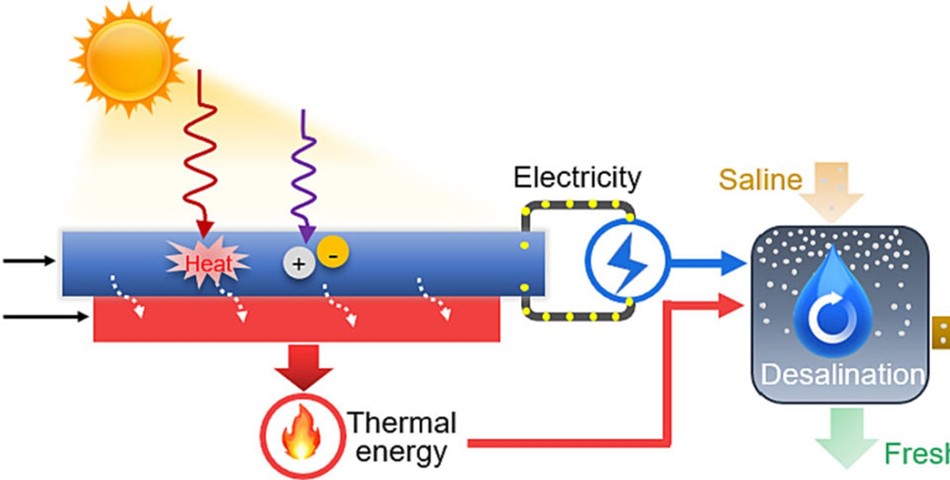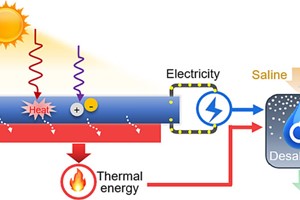UK researchers have proposed the use of photovoltaic-thermal energy for desalination purposes, via an approach based on synergistic electro-thermal coupling mechanisms. They have found that some system configurations could offer a lower levelized cost of desalinated water, in addition to higher efficiencies.
A research team in the United Kingdom has looked at how the combination of photovoltaics and solar thermal (ST) energy could improve the efficiency and viability of different solar desalination processes. The scientists said their work builds on past research showing the advantage of combining PV and solar thermal energy for desalination purposes.
“However, most previous PVT-desalination studies to-date have focused on the development of system integration solutions between conventional PVT collectors and desalination modules, and have not considered opportunities for synergistic electro-thermal coupling mechanisms,” the scientists said, in reference to the novelty of their study. “Variation in the use of heat and electricity in desalination can improve the performance of the system even when it is operated at similar solar-energy efficiencies.”
The researchers made a distinction between desalination technologies that are preferable for use with electricity, and technologies that rely on heat. The former are reverse osmosis (RO), electrodialysis (ED), mechanical vapor compression (MVC) and capacitive deionization (CDI) solutions, while the latter are multiple-stage flash (MSF) and multiple-effect distillation (MED), and membrane distillation (MD) technologies.
They described all available photovoltaic and solar thermal technologies and provided a short description of the integration mechanisms of non-synergistically integrated PVT-desalination systems. They also noted that their paper is designed to investigate new mechanisms that smartly co-use electricity and heat from photovoltaic-thermal (PVT) systems.
Through preliminary techno-economic analysis based on performance and cost metrics, the scientists assessed several PVT-desalination integrated solutions and their levelized cost of desalinated water (RLCOW). They compared the data with figures from pure PV desalination or ST desalination systems. They also assumed that the capital and operational costs of desalination systems, accessory equipment and hydraulic systems are the same between PV-RO and ST-MD systems and alternative PVT systems.
“However, the two variables considered are: (1) the water productivity of PVT-desalination relative to PV desalination and ST desalination; and (2) the capital costs of PVT systems relative to PV and ST systems,” they said. “Currently, the cost of a commercially available PVT system is usually 1.5 to two times that of an equivalent PV system due to the more complicated structure and the requirement for additional accessories of PVT systems.”
Through their analysis, the researchers found that the most common desalination technology – reverse osmosis (RO) – may see its RLCOW reduced by 20% if energized by PVT systems compared to pure PV installations.
“Given the dominance of RO in newly installed desalination capacity and the prominent scalability of MD as a thermally driven desalination process, the potential water cost saving indicates opportunities for immediate positive impact, which could help address water challenges in off-grid area,” they stated.
They presented their findings in “Synergies and potential of hybrid solar photovoltaic-thermal desalination technologies,” published in Desalination. The research team includes academics from the Imperial College London and King's College London.
“More research should be conducted to elucidate the electro-thermal coupling mechanism and to develop parametric theories/models for the co-use of electricity and heat in different desalination processes,” they concluded.
Emiliano Bellini












